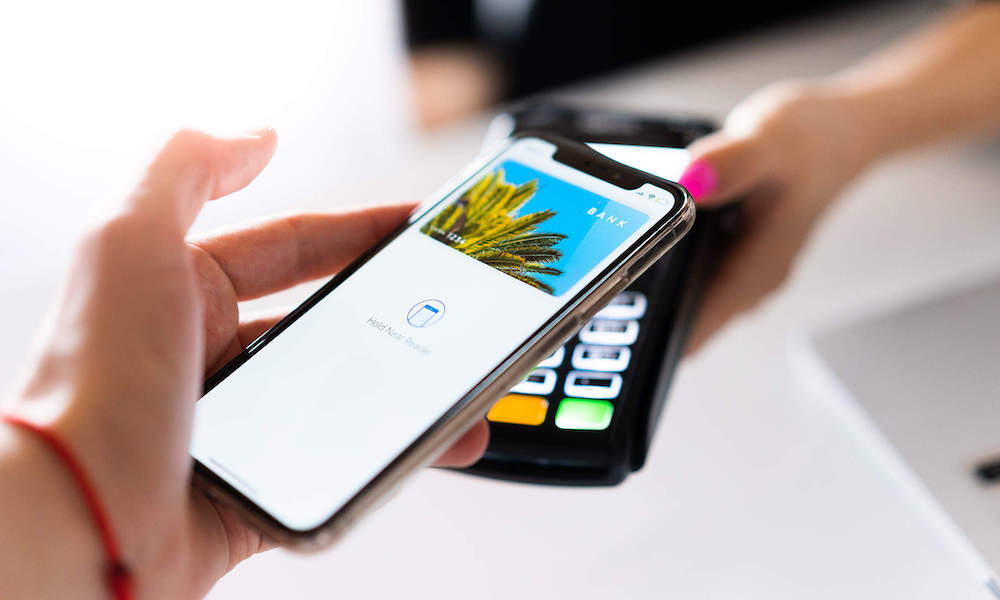iPhone Users in Germany May Soon Be Able to Use Competing NFC Mobile Wallet Services
 Credit: Viktor Hanacek / PicJumbo
Credit: Viktor Hanacek / PicJumbo
Toggle Dark Mode
Apple’s exclusive access to the NFC chip on its iPhone has long been a point of contention with many other banks and mobile wallet services, but this could be set to change in at least one country if a new German law comes into effect.
There’s no doubt that Apple Pay is a great mobile payment service from both a usability and security perspective, but when Apple introduced NFC into the iPhone 6 back in 2014, it very specifically locked the chip down to being used only with its own payment system, blocking other banks and mobile wallet providers — or even third-party app deveopers — from touching the NFC chip at all.
While most banks and credit card companies have simply fallen into step with Apple’s way of doing things, some haven’t gone so quietly, resulting in complaints against Apple of anti-competitive behaviour, most famously in Australia in 2016, where three of the largest banks in that country and a group of retailers insisted that their own banking apps should be given equal placement with Apple Pay when it comes to using the NFC chip in the company’s iPhone.
Throughout all of these complaints, Apple has maintained the stance that opening up the NFC chip would compromise the security of the iPhone and its payment platform. Although Apple opened the hardware up a bit in iOS 11 a couple of years ago, and has expanded it even further in iOS 13, it has still staunchly continued refusing to allow the NFC chip to be used by other mobile payment apps.
New German Legislation
However, it seems that Apple might soon have no choice but to make its NFC hardware more widely accessible to the banks, at least in Germany.
According to Reuters, a German parliamentary committee slipped in an amendment to a new anti-money laundering law that would “force operators of electronic money infrastructure to offer access to rivals for a reasonable fee.” While the amendment didn’t specifically name Apple or Apple Pay, it’s pretty clear that it means Apple and Apple Pay.
The new regulation, which still needs to be passed by the upper house of the German parliament, the Bundesrat, would require Apple to open up its Apple Pay platform to any rival provider in Germany that’s willing to pay an appropriate fee — while the bill mentions that the fee should be “reasonable” it doesn’t elaborate on what this means, but it suggests that Apple wouldn’t be able to discourage competition simply by pricing it out of reach.
Apple notes that the move took it by surprise, and it’s naturally claiming that such a policy will be bad for consumers, both in terms of security and in terms of the current seamless way in which Apple Pay works.
We are surprised at how suddenly this legislation was introduced. We fear that the draft law could be harmful to user friendliness, data protection and the security of financial information.
Apple, in a statement to Reuters
In the latter case, it stands to reason that requiring users to open third-party apps specifically to make payments would be considerably more cumbersome than the way in which Apple Pay currently works; although Apple could certainly redesign iOS to allow for other default payment apps, it probably has little incentive to do this unless laws specifically force it to, and it doesn’t appear that the new German regulations are even close to that specific.
It’s also unclear whether this bill will receive assent by the German government next year, however the Apple Pay provision is only one small part of an amendment to much broader anti-money-laundering bill that the government is likely eager to pass. An anonymous source close to the government told Reuters that German Chancellor Angela Merkel’s office has pushed for the committee to withdraw the amendment, however a senior official in the office spoke on the record stating that there had been complete consensus within the government over the decision, and that the Chancellor’s office was only concerned with making sure that the legislation was “legally watertight.”
Germany may also simply be the first battleground that Apple faces in the European Union, with the EU’s antitrust regulators currently looking into a number of alleged anti-competitive behaviours on the part of Apple and other U.S. tech giants, and restricting access to the NFC hardware is already on their radar, along with the fact that Apple Pay is promoted heavily to users when they first set up a new iPhone.






